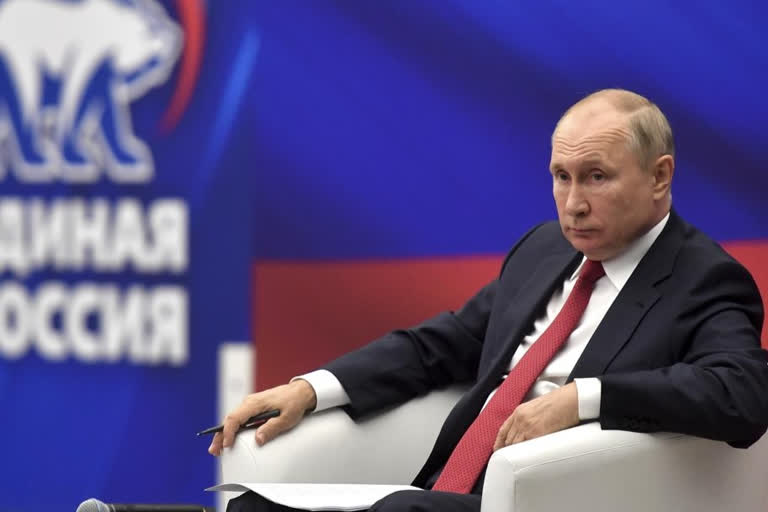Moscow:After a few weeks of desultory campaigning but months of relentless official moves to shut down significant opposition, Russia began three days of voting early Friday in a parliamentary election that is unlikely to change the country's political complexion. There's no expectation that United Russia, the party devoted to President Vladimir Putin, will lose its dominance of the State Duma, the elected lower house of parliament.
The main questions to be answered are whether the party will retain its current two-thirds majority that allows it to amend the constitution; whether anemic turnout will dull the party's prestige; and whether imprisoned opposition leader Alexei Navalny's Smart Voting initiative proves to be a viable strategy against it. There is very little intrigue in these elections and in fact they will not leave a special trace in political history, Andrei Kolesnikov, an analyst at the Carnegie Moscow Center, told The Associated Press.
Putin, however, urged Russians to vote, saying in a video message Thursday that election of (the Duma's) new composition is undoubtedly the most important event in the life of our society and country.
Polls opened Friday morning in the Far East regions of Kamchatka and Chukotka, which are nine hours ahead of Moscow. Voters will be able to cast ballots through Sunday. With 14 parties fielding candidates for half of the Duma's 450 seats that are chosen by party list, the election has a veneer of being genuinely competitive. But the three parties aside from United Russia that are expected to clear the 5% support necessary to get a seat rarely challenge the Kremlin.
Also read:Indian troops to attend multinational counter-terrorism drill in Russia
The Kremlin wants control over the new parliament, which will still be in place in 2024, when Putin's current term expires and he must decide on running for reelection or choosing some other strategy to stay in power. The other half of the seats are chosen in individual constituencies, where independent candidates or those from small parties such as the liberal Yabloko may have stronger chances. These seats are also where the Navalny team's Smart Voting strategy could make inroads.
The program sidesteps ideology in order to undermine United Russia, simply advising voters which candidate other than the ruling party's is the strongest in a single-mandate race.
It's essentially a defensive strategy.
Voting to harm United Russia is not a meaningful goal, not a goal to choose another candidate whom you ideologically support, Kolesnikov said. But it showed potency in its inaugural use in 2019 when opposition candidates won 20 of 45 seats in the Moscow city council, and a year later when United Russia lost its majorities in the councils of three large cities.
Also read:Pak hosts intel chiefs of Russia, China, Iran to discuss Afghan situation
However, it's unclear how widely it will be used this year after authorities blocked access to its website. The service remains available through apps, but Russia has threatened fines against Apple and Google to remove the apps from their online stores. The Foreign Ministry last week summoned U.S. Ambassador John Sullivan to protest election interference by American digital giants.
Blocking the website was the latest move to neutralize the Navalny operation, which was Russia's most visible and determined opposition organization, capable of calling sizable protests throughout the country.
